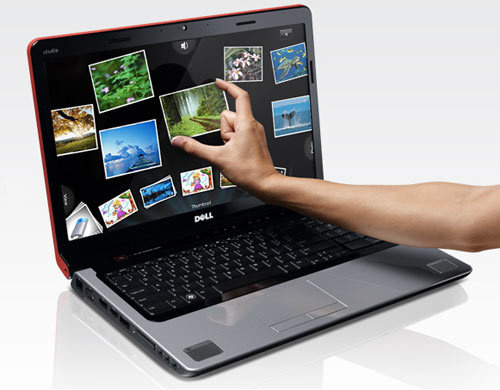Touchscreen Notebooks Could See Up to 25% Price Drop
According to DigiTimes, notebooks equipped with touchscreens will be reduced by 20 to 25 percent in Taiwan.
Earlier this month, it was reported that Intel would require the inclusion of touchscreens on all 3rd generation Ultrabooks, a move that was expected to significantly increase prices due to a number of factors, including the continuing shortage of touch panels.
To offset this, Intel was reportedly increasing its marketing subsidies to manufacturers. According to a report from DigiTimes, Intel's plan, in conjunction with Microsoft's licensing fees, has been successful since Taiwan-based notebook manufacturers will be reducing the prices of touchscreen equipped notebooks by 20 to 25 percent.
The price drop is expected to occur during this year's SOFTEX convention. It will help "boost touchscreen notebook demand and push sales proportions to 20%" and reduce the price differences between touchscreen and non-touchscreen notebooks.
Contact Us for News Tips, Corrections and Feedback
Get Tom's Hardware's best news and in-depth reviews, straight to your inbox.
Tarun Iyer was a contributor for Tom's Hardware who wrote news covering a wide range of technology topics, including processors, graphics cards, cooling systems, and computer peripherals. He also covered tech trends such as the development of adaptive all-in-one PCs.
-
JOSHSKORN Touchscreen prices can drop all they want, Keyboards/Mice will not die in the foreseeable future.Reply -
merikafyeah I have no idea why people would ever think that the keyboard and mouse will be replaced by touch screens? Smart people treat touch screens news as good news because in my reality having more options is a good thing and not something to dread. I suppose the type of people who don't like touchscreens are the type that have this fantasy that touch screens will, for some inexplicable reason, render their mouse and keyboard useless, which could never happen so long as you have a working USB port, but y'know, details.Reply -
bourgeoisdude I have yet to see a touchscreen that rendered my mouse/keyboard inoperable, so I think you're safe. I think it is a good thing. For those of us who use Windows 8, it really does work better with touch capability, even if I still use mouse/keyboard 80% of the time.Reply -
dalethepcman That the touchscreen LAPTOP is dropping 20-25% in price goes to show how much of a markup devices with touch screen's had on them. When a Nexus tablet costs $200, and the cost difference between a touchscreen and non touchscreen laptop with otherwise identical spec's is $500 or more, consumers notice.Reply
Touch technology has worked great since Windows Vista and PC vendors all but refused to build hardware that used it. Its sad to see the PC Industry think they can charge a premium for technology that has been available for nearly a decade. Declining PC sales has been the consumer voting with their wallet. -
InvalidError Reply
Touchscreens on desktops/laptops attempt to fix a problem desktop/laptop users generally do not have but create many problems they do not need/want.10669351 said:Of course the price is dropping; nobody wants them.
I personally hate having smudges on my screen and holding my arms up to the screen to use a desktop/laptop touch-screen would put a rather undesirable strain on my shoulders.
So yeah, I have no interest in paying a large premium for something that provides almost no benefit but screams ergonomic hazard. I put up with smudges on my tablet's screen simply because touch input on it is not any more of a hazard than holding the device in the first place and tablets have no alternate input method - at least none that do not imply dragging extra hardware along and defeat the whole point (at least for me) of bringing a tablet along in the first place.
It makes more sense on devices like the Asus Transformer, Microsoft Surface and other similar devices where the keyboard/trackpad and possibly other dock-based hardware are detachable from the display/tablet main body when tablet 'mode' is needed.
